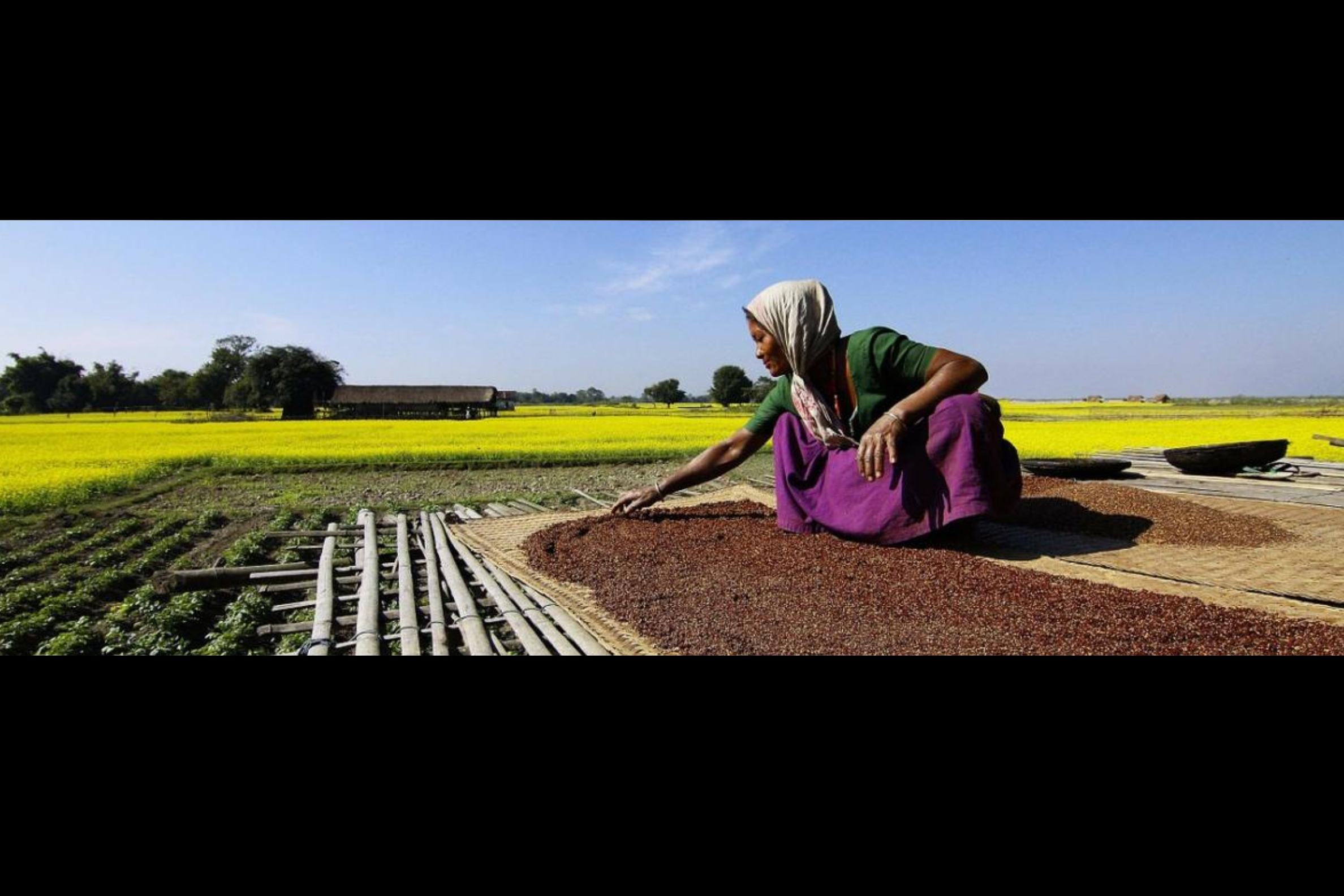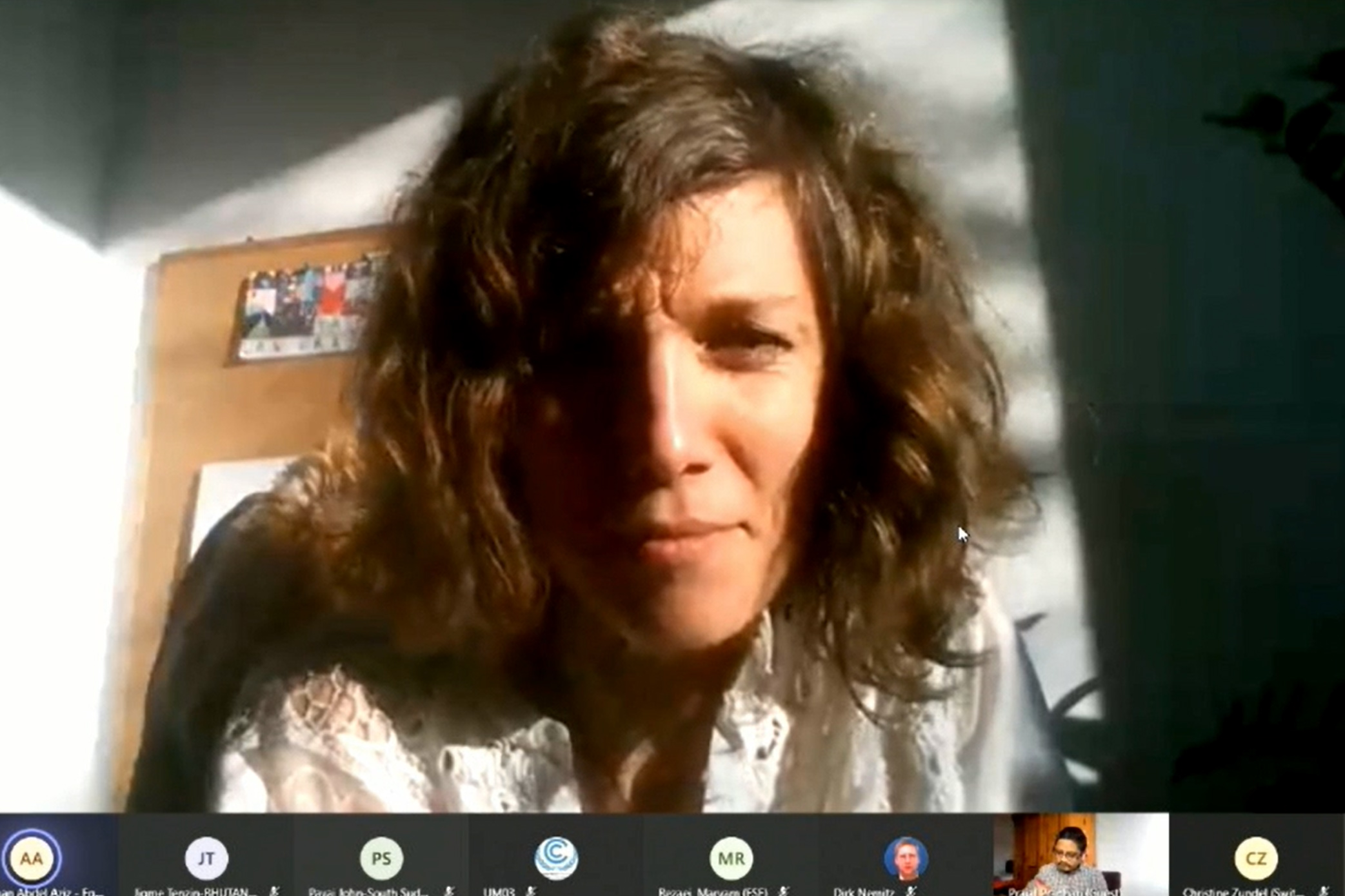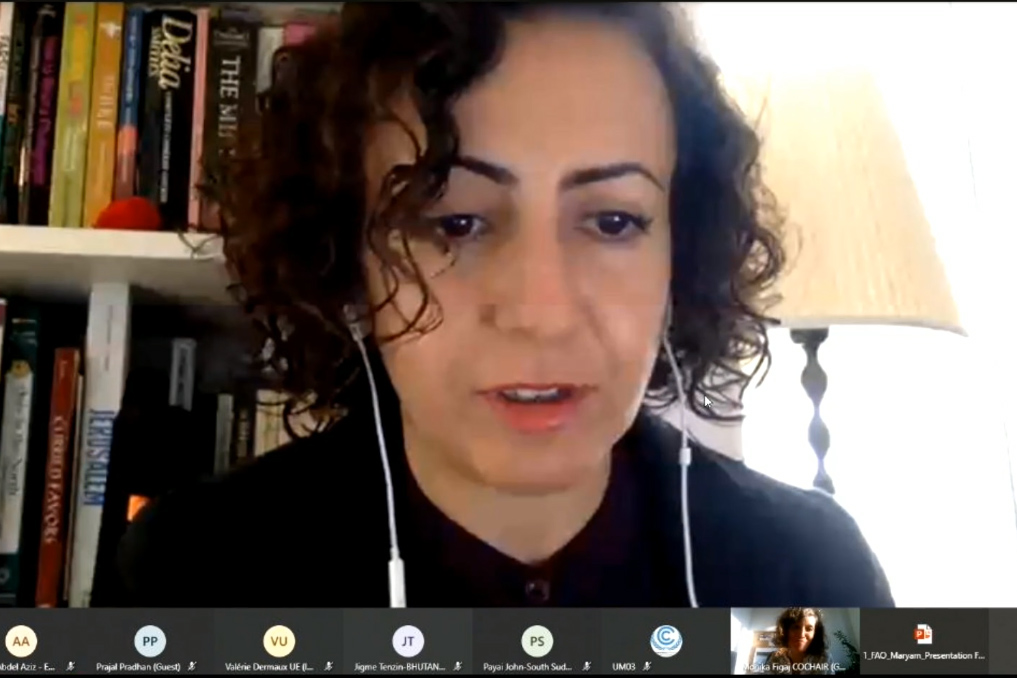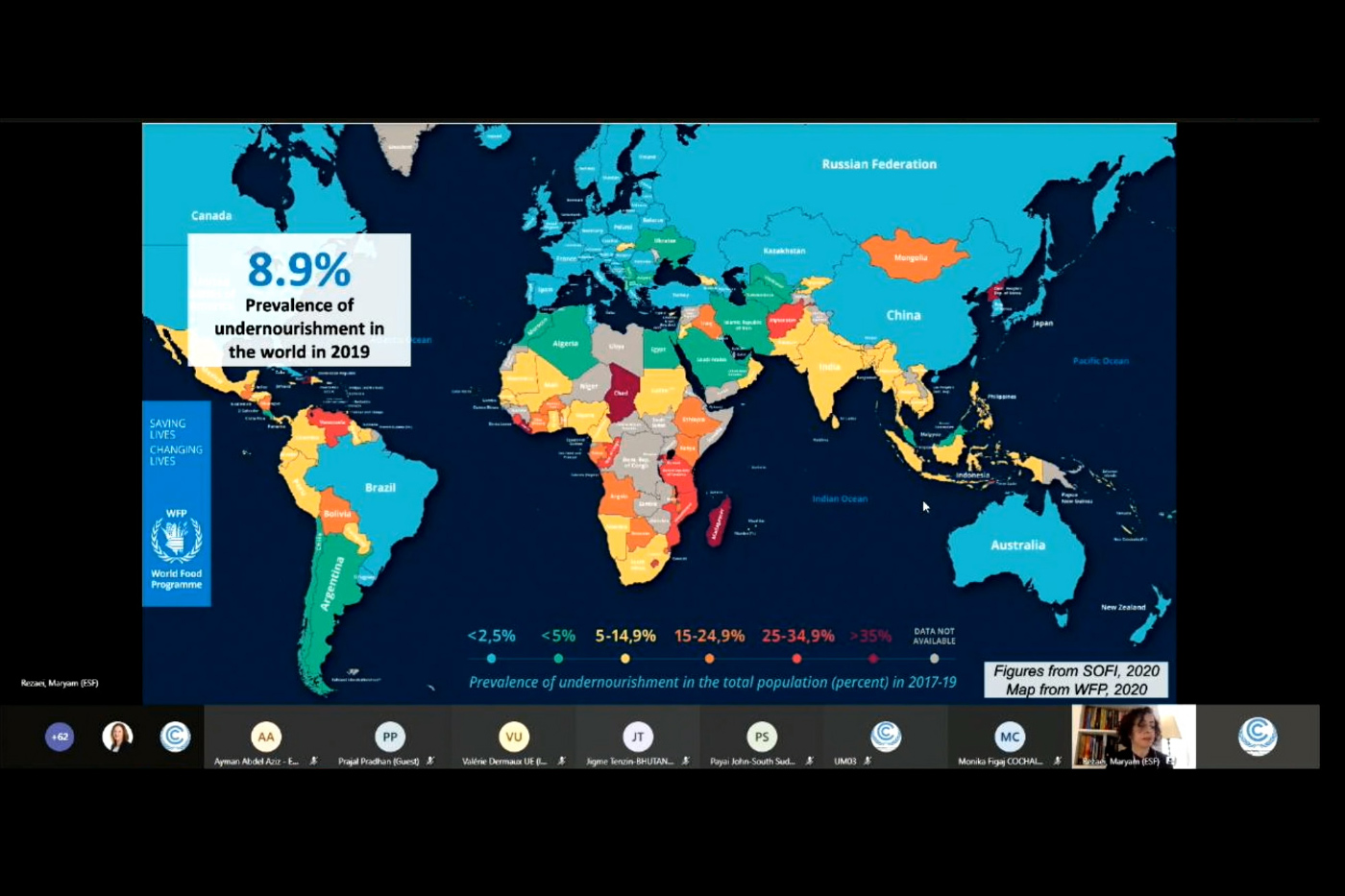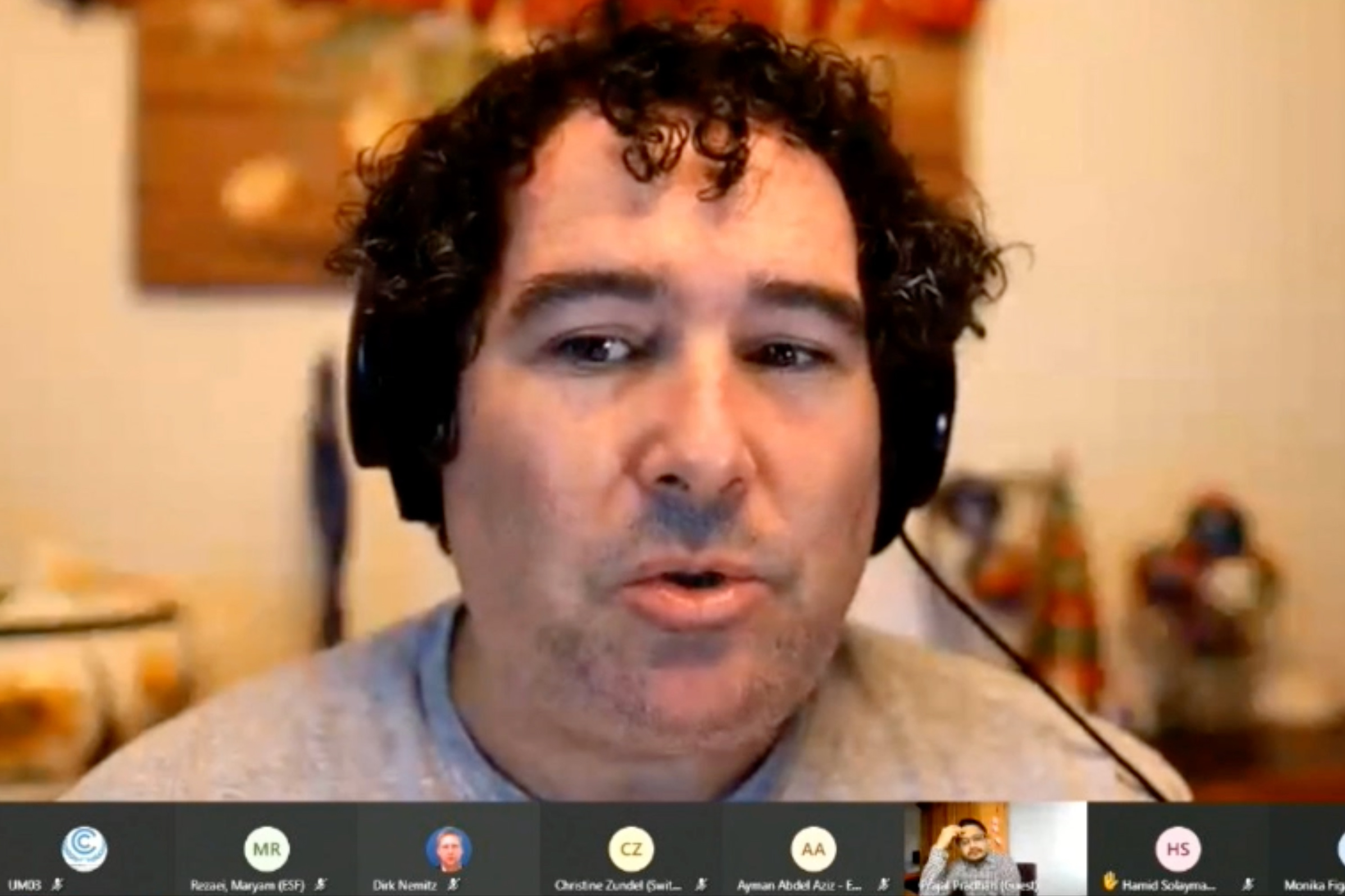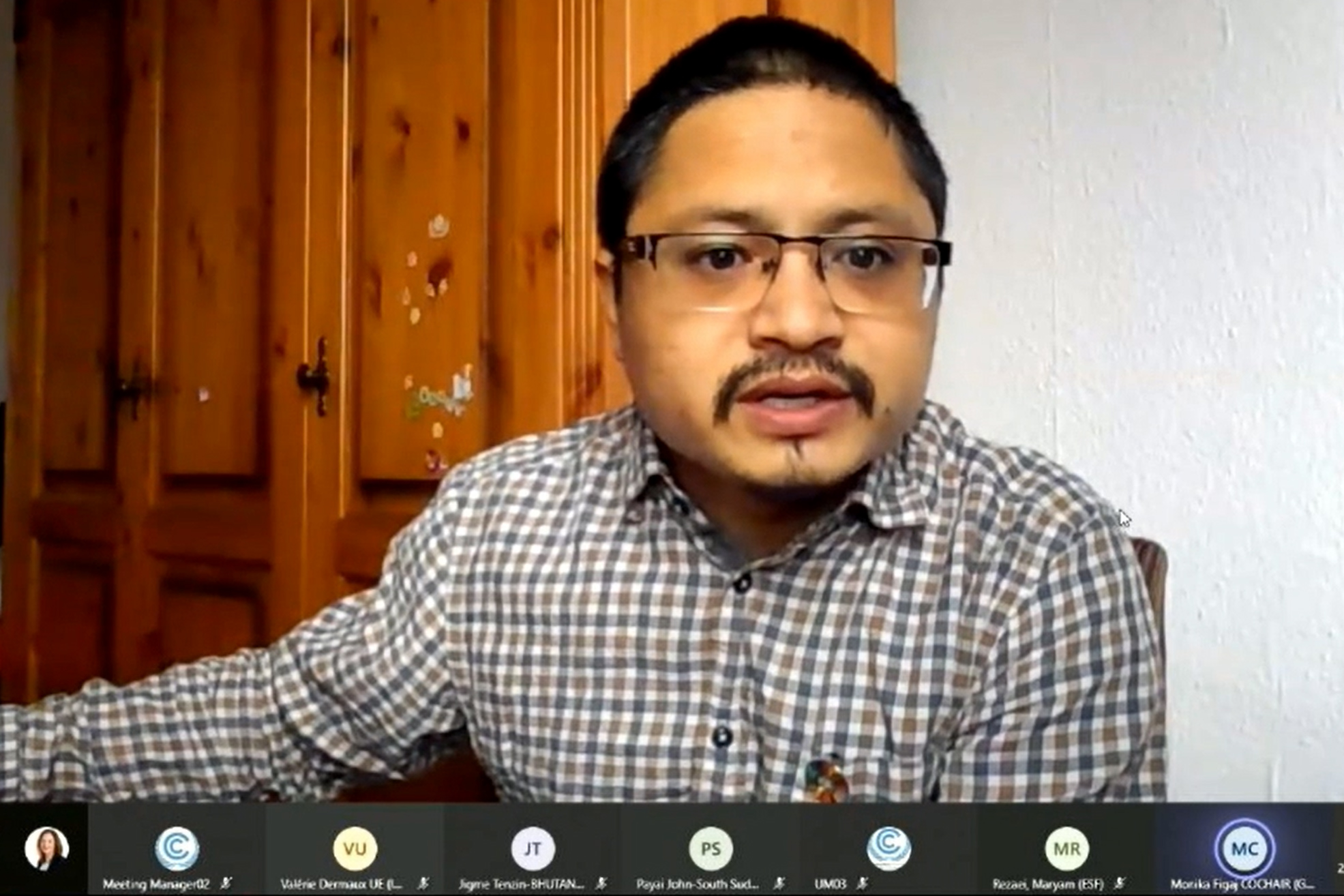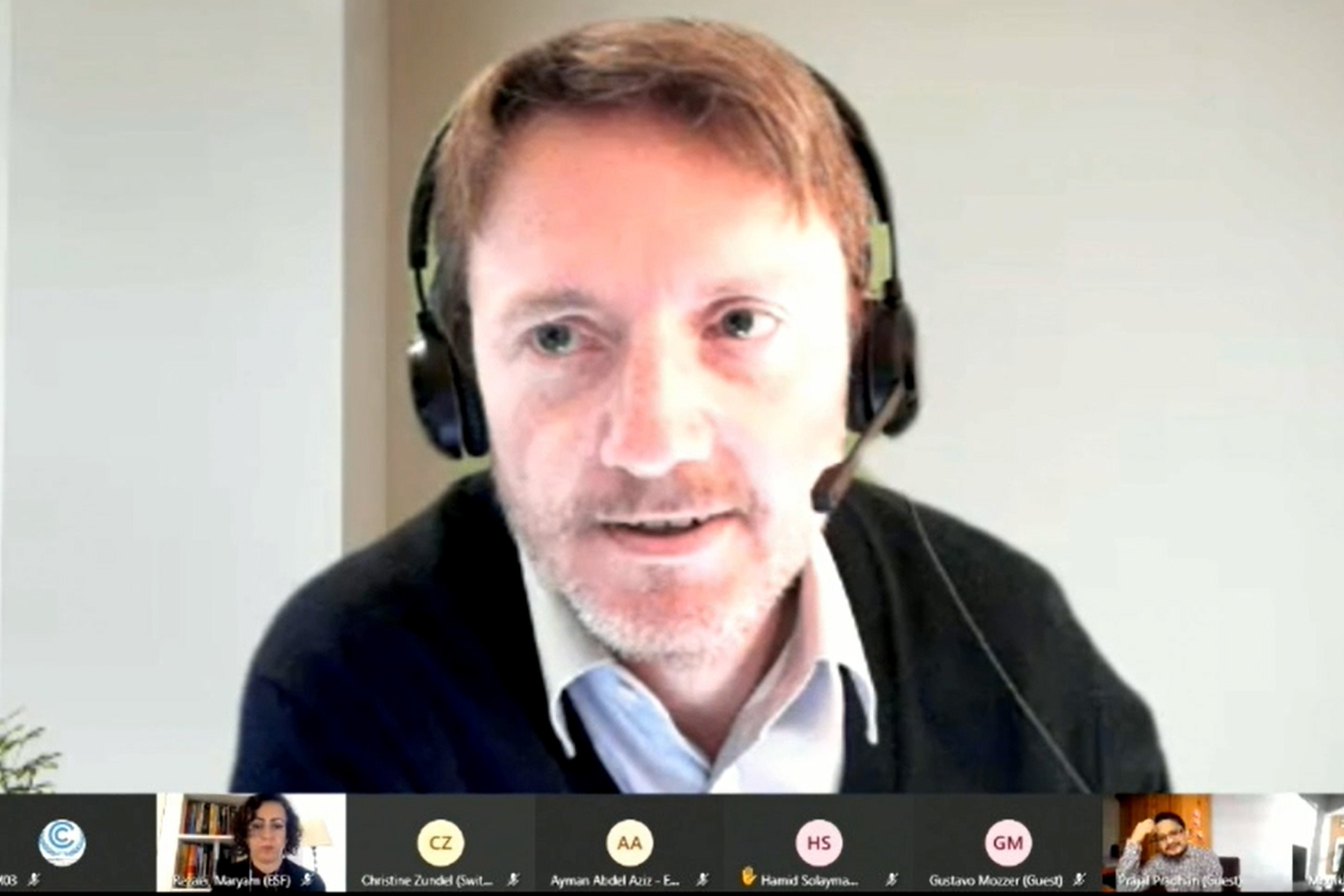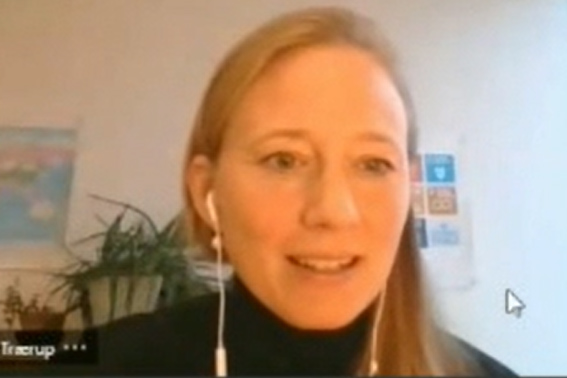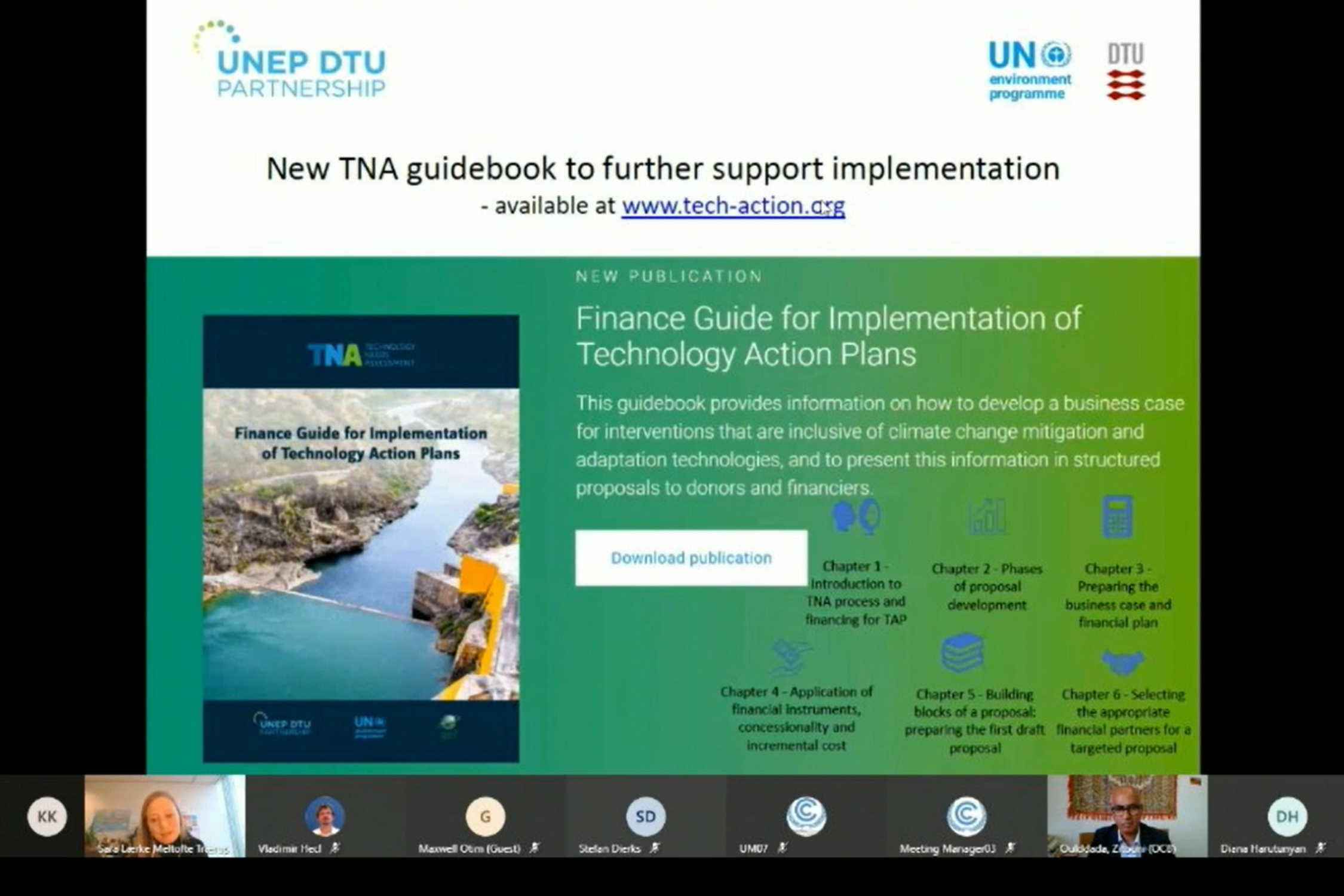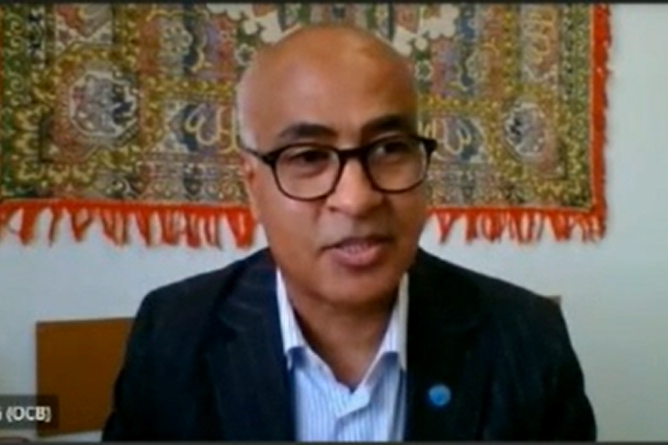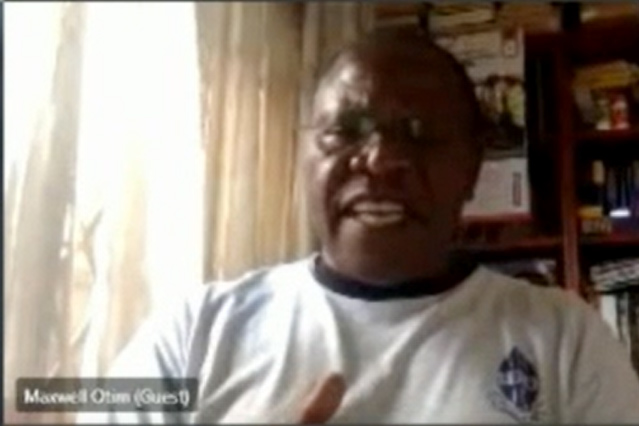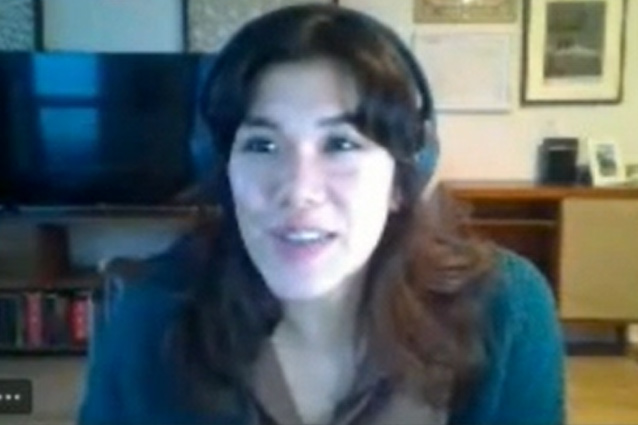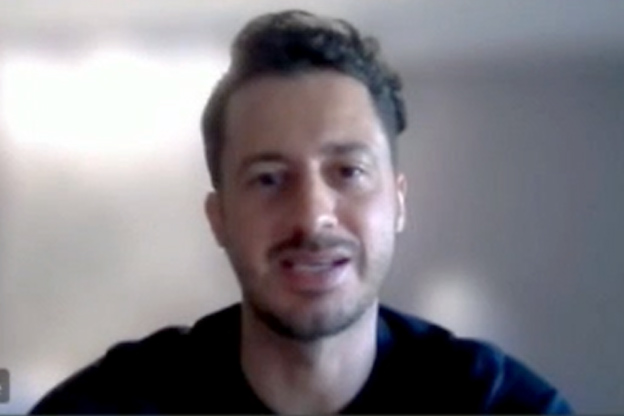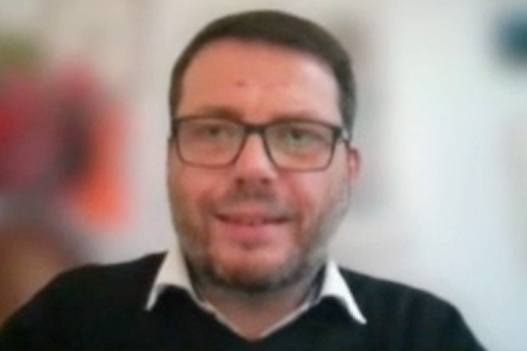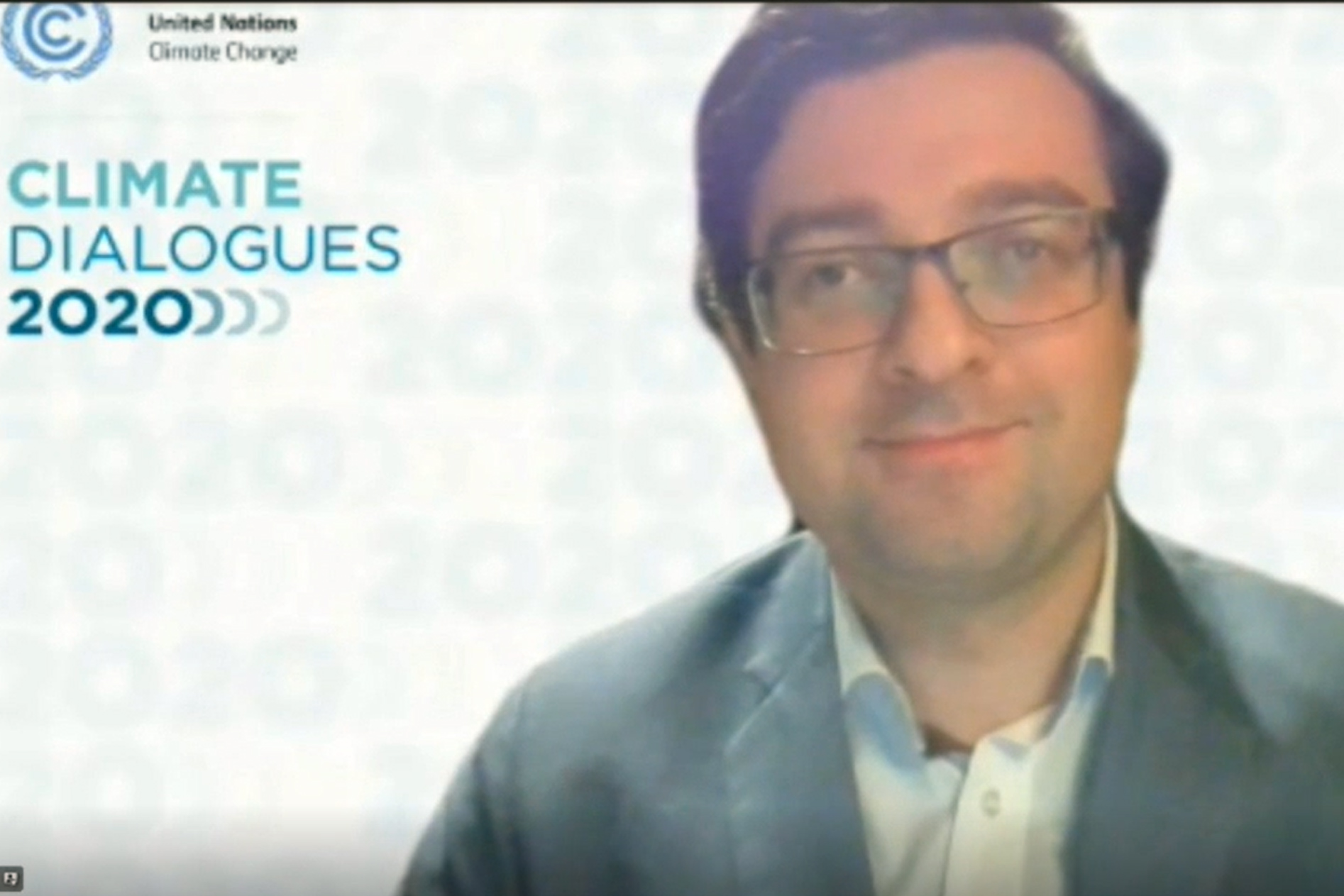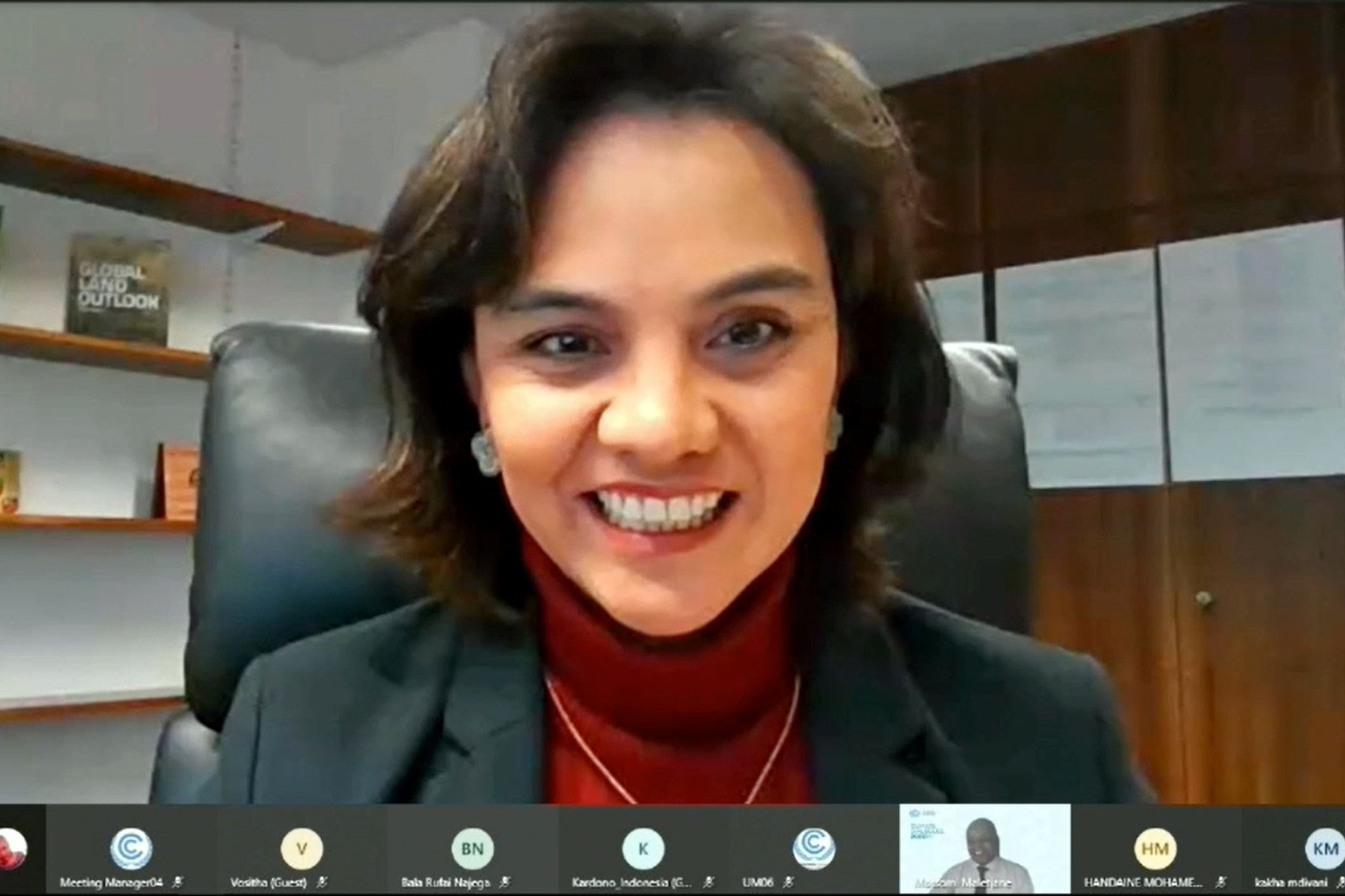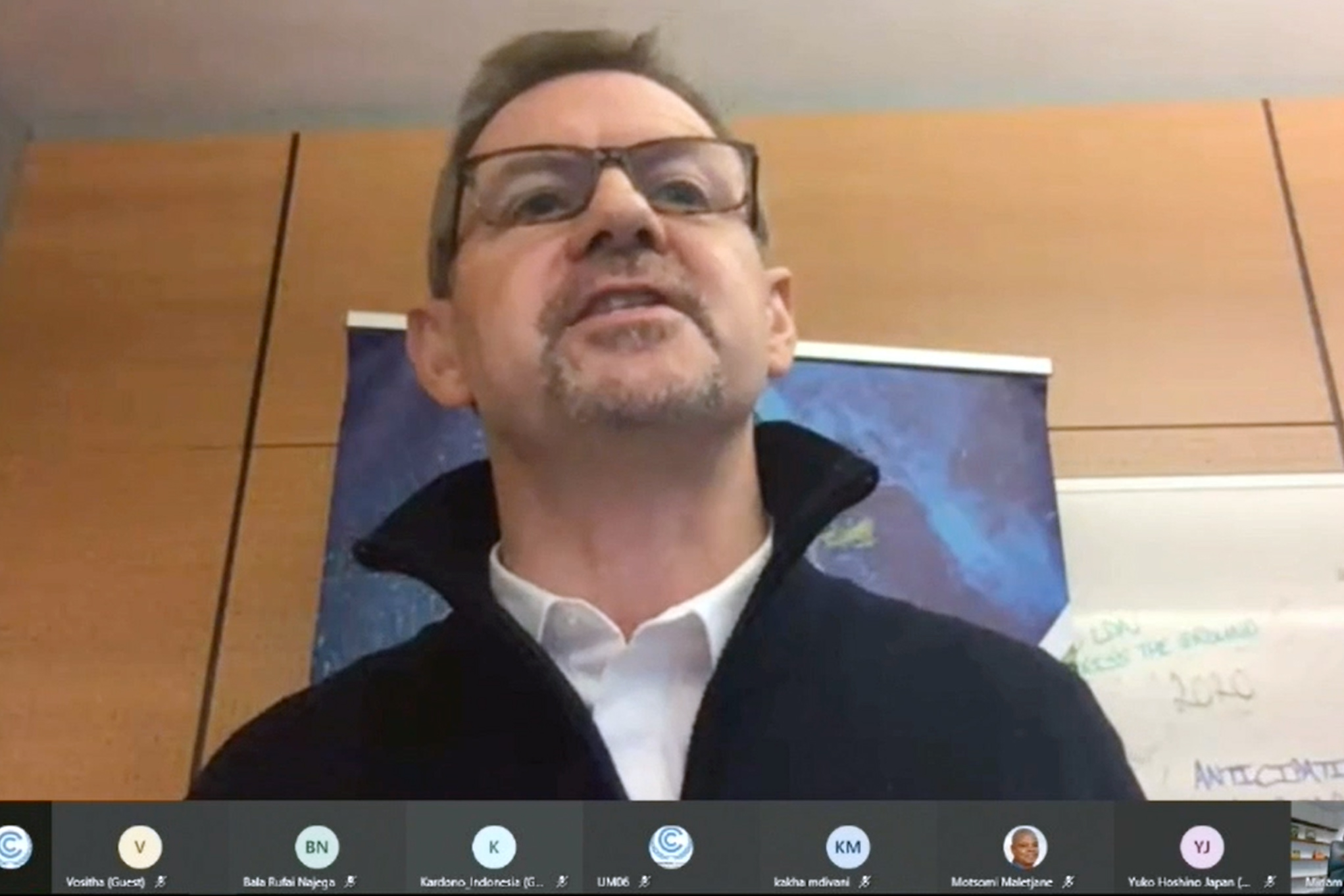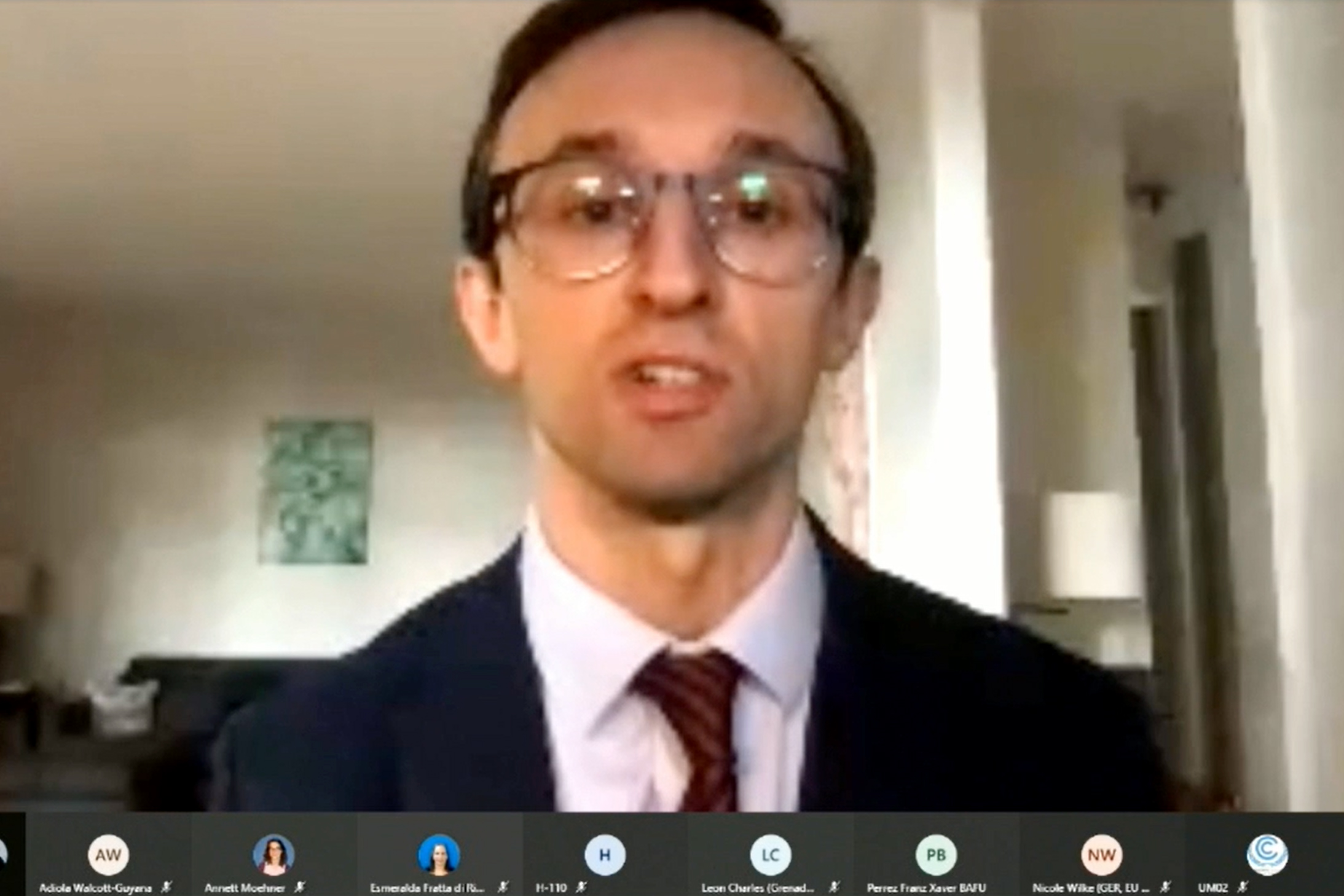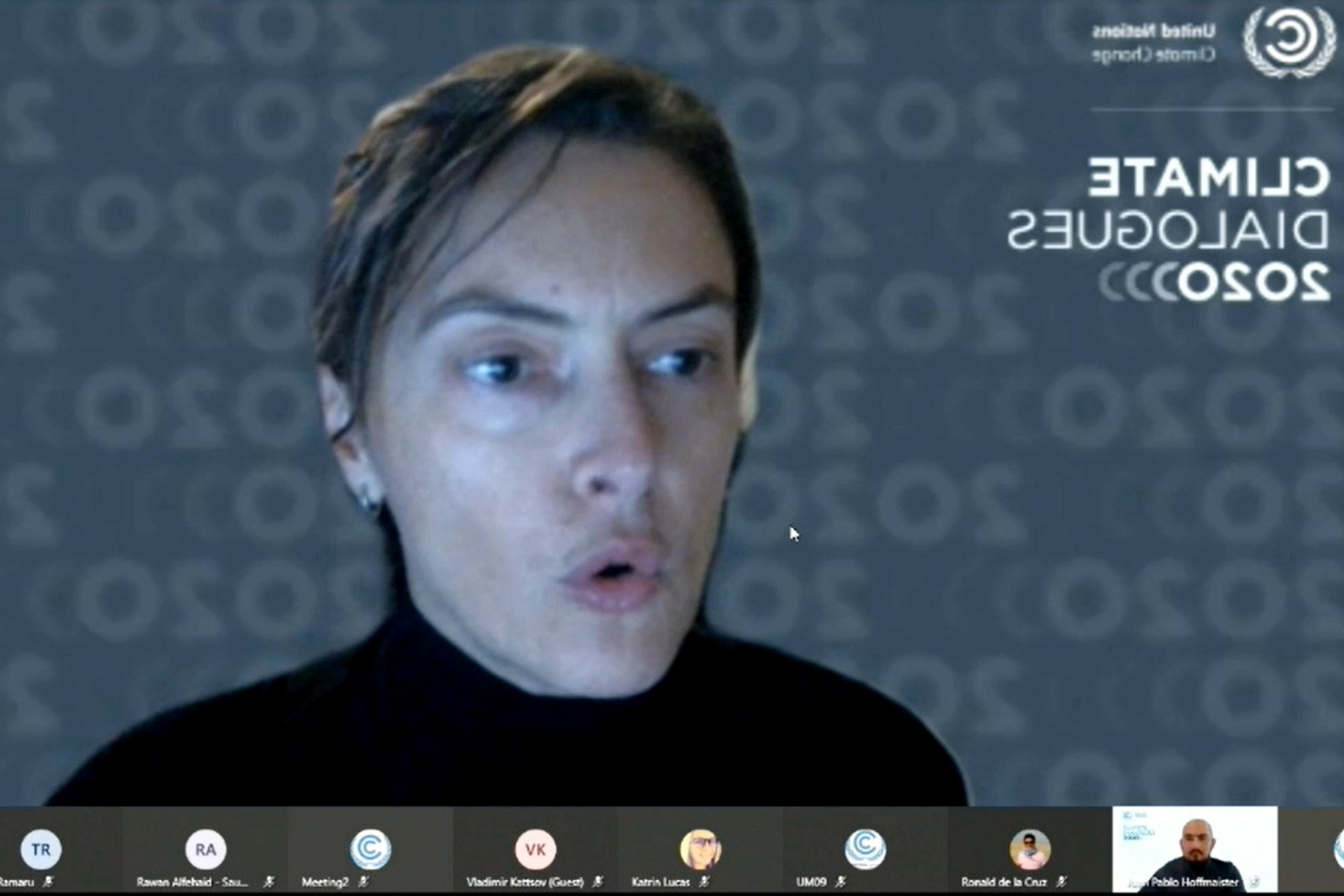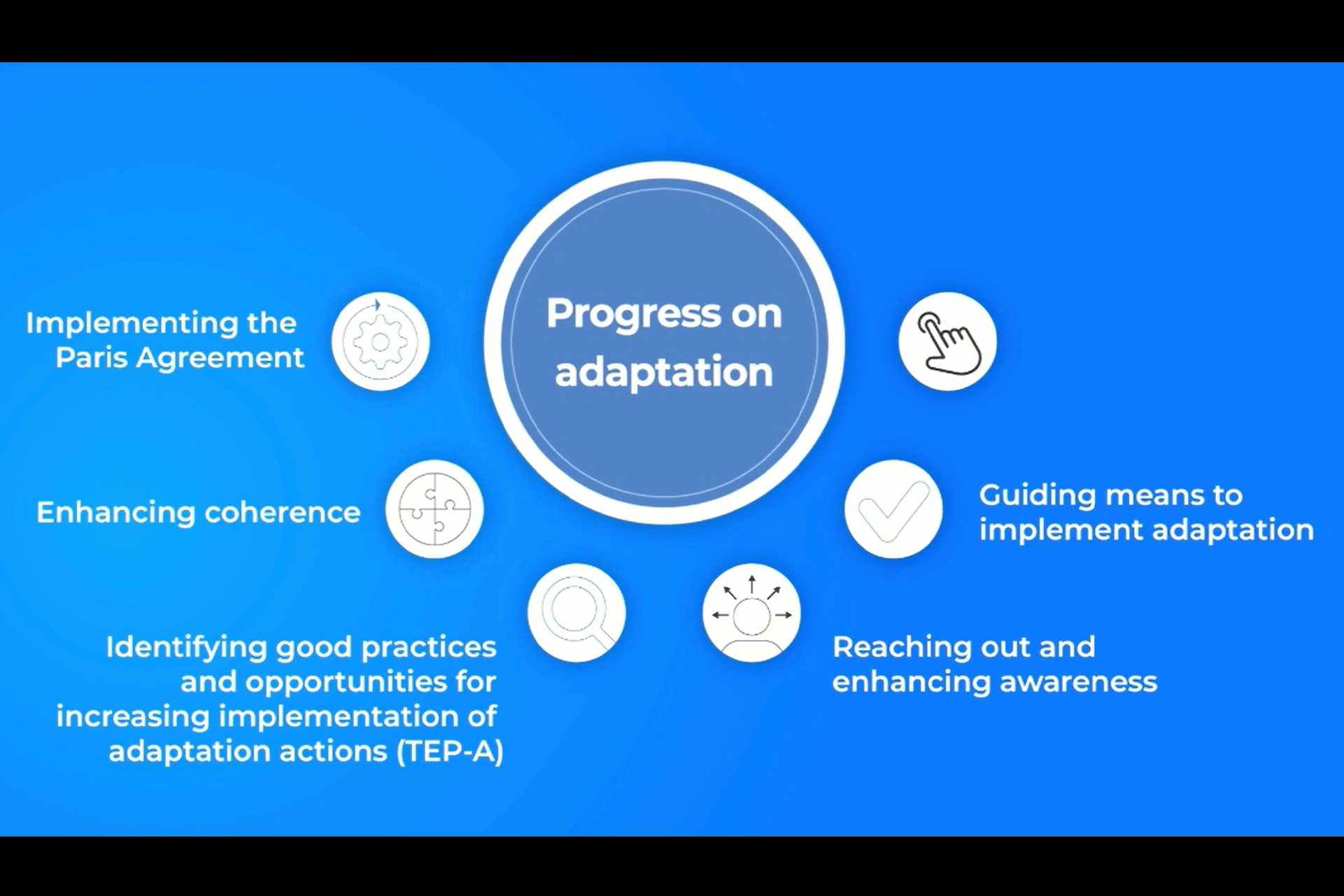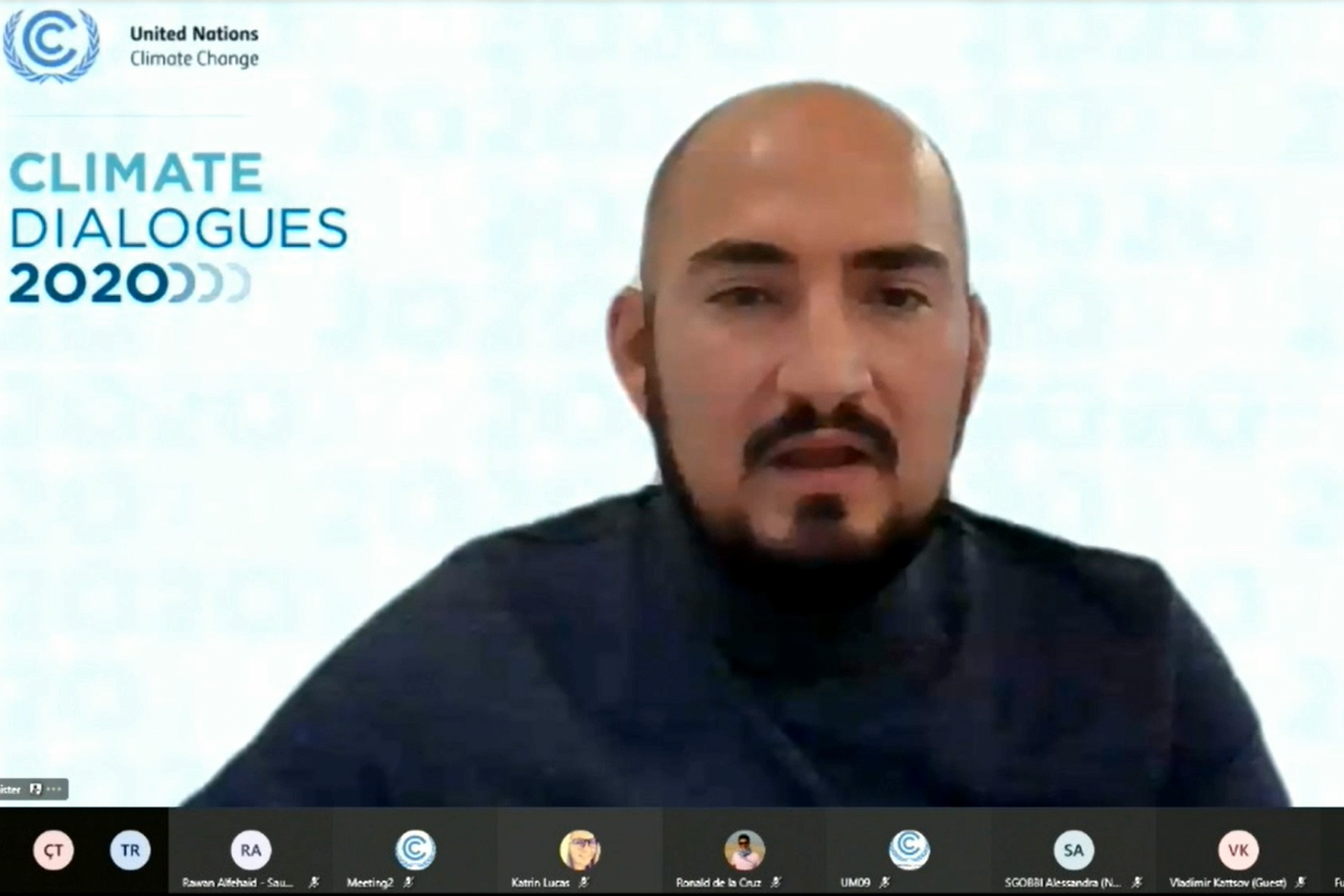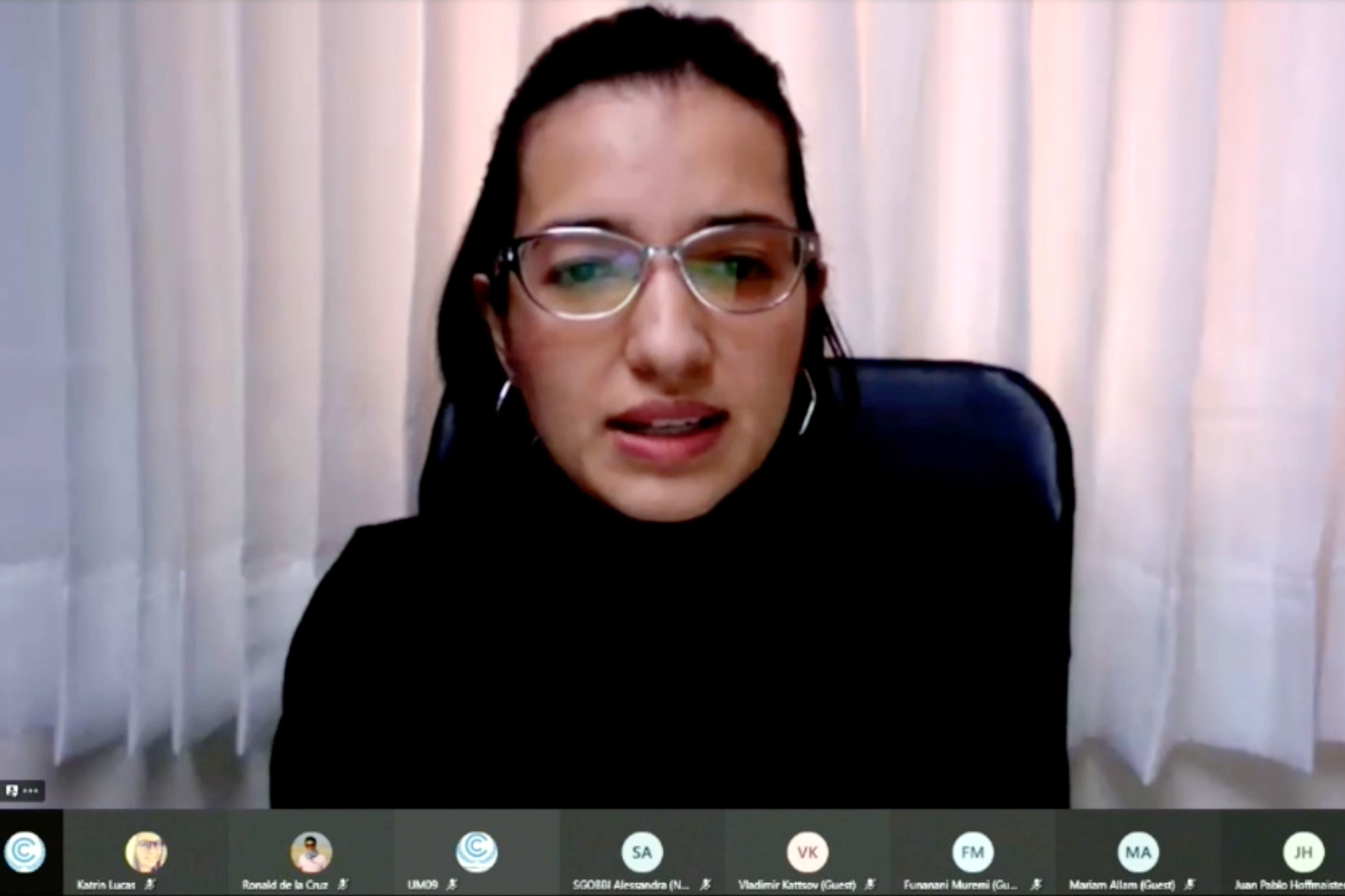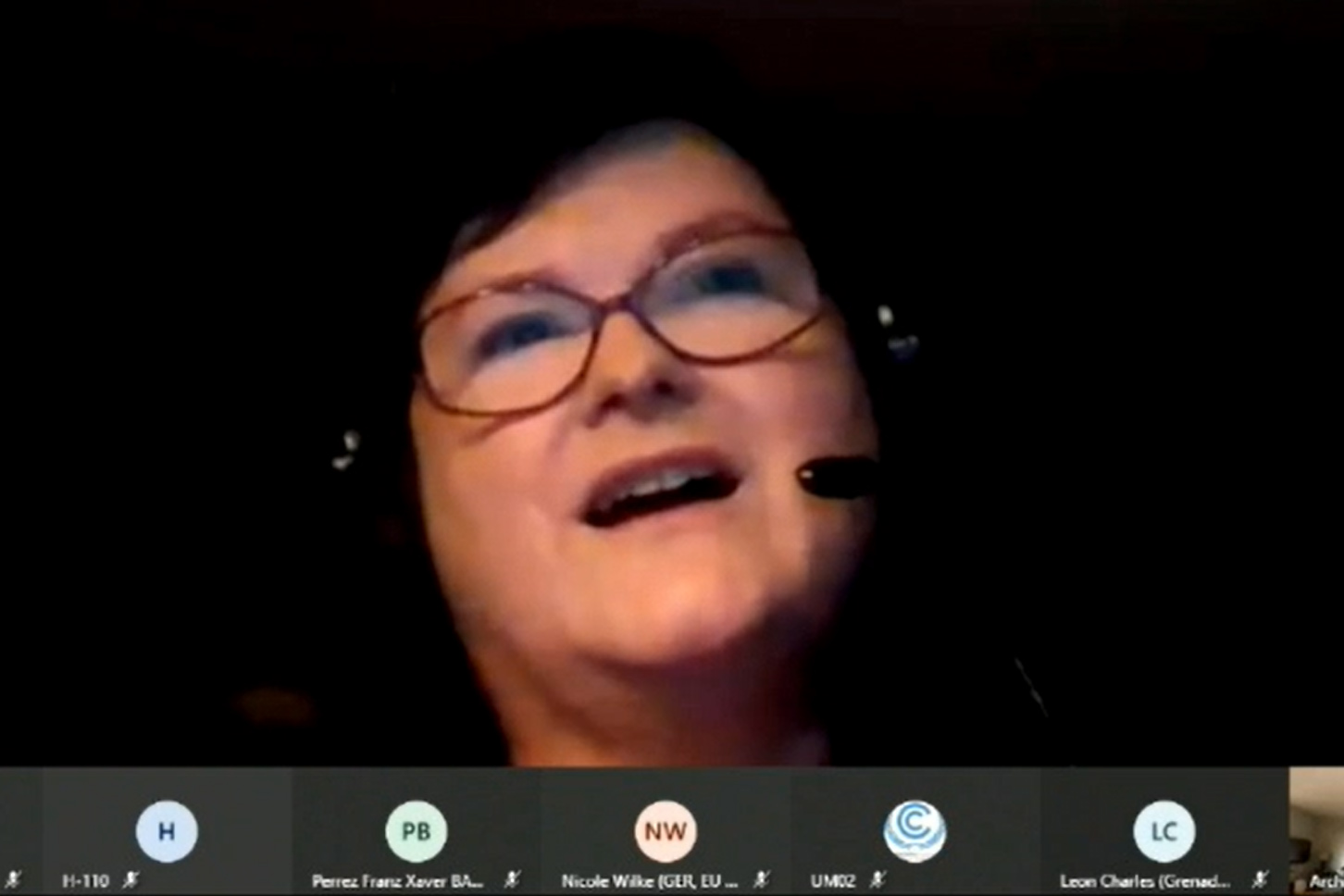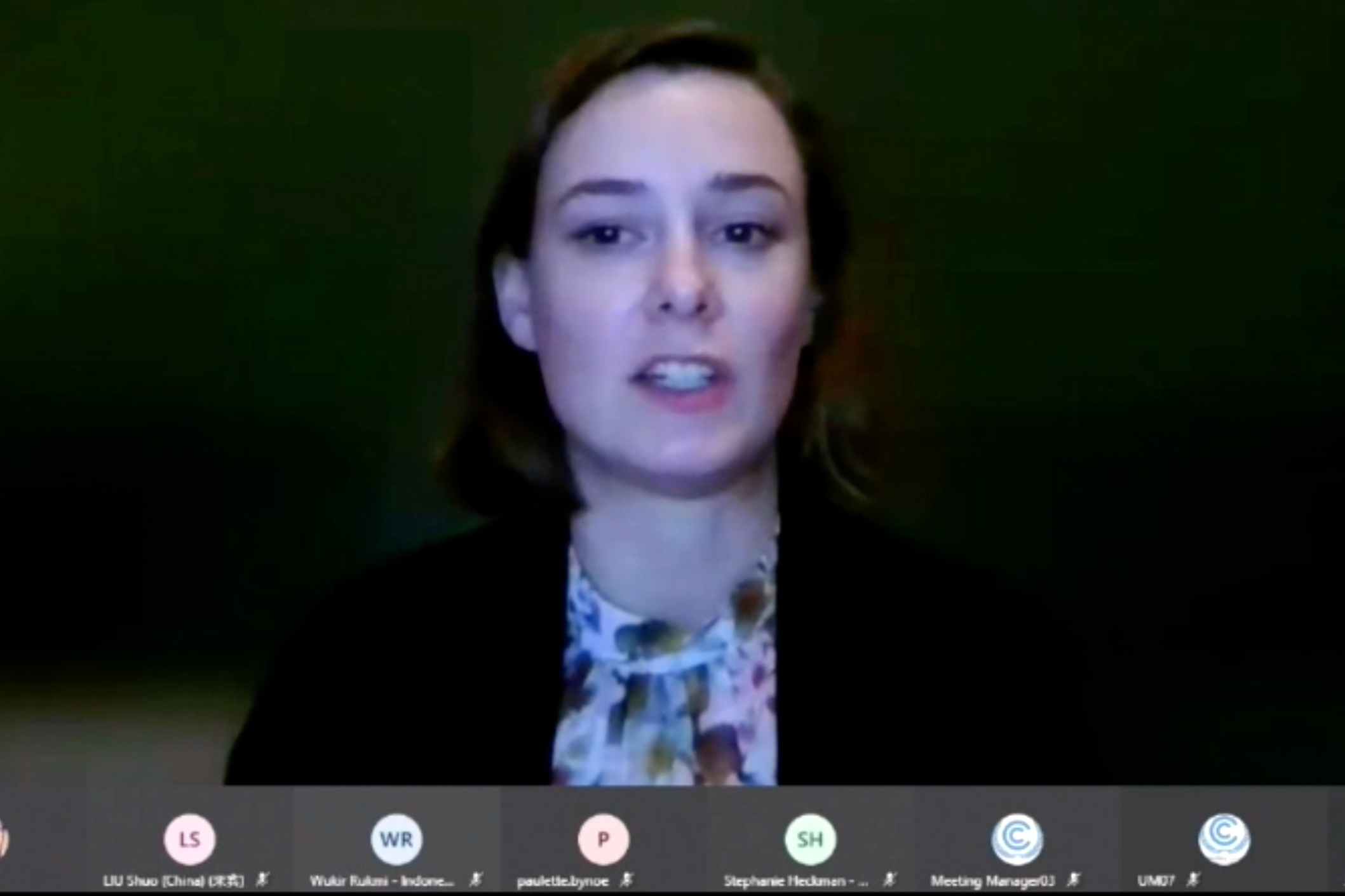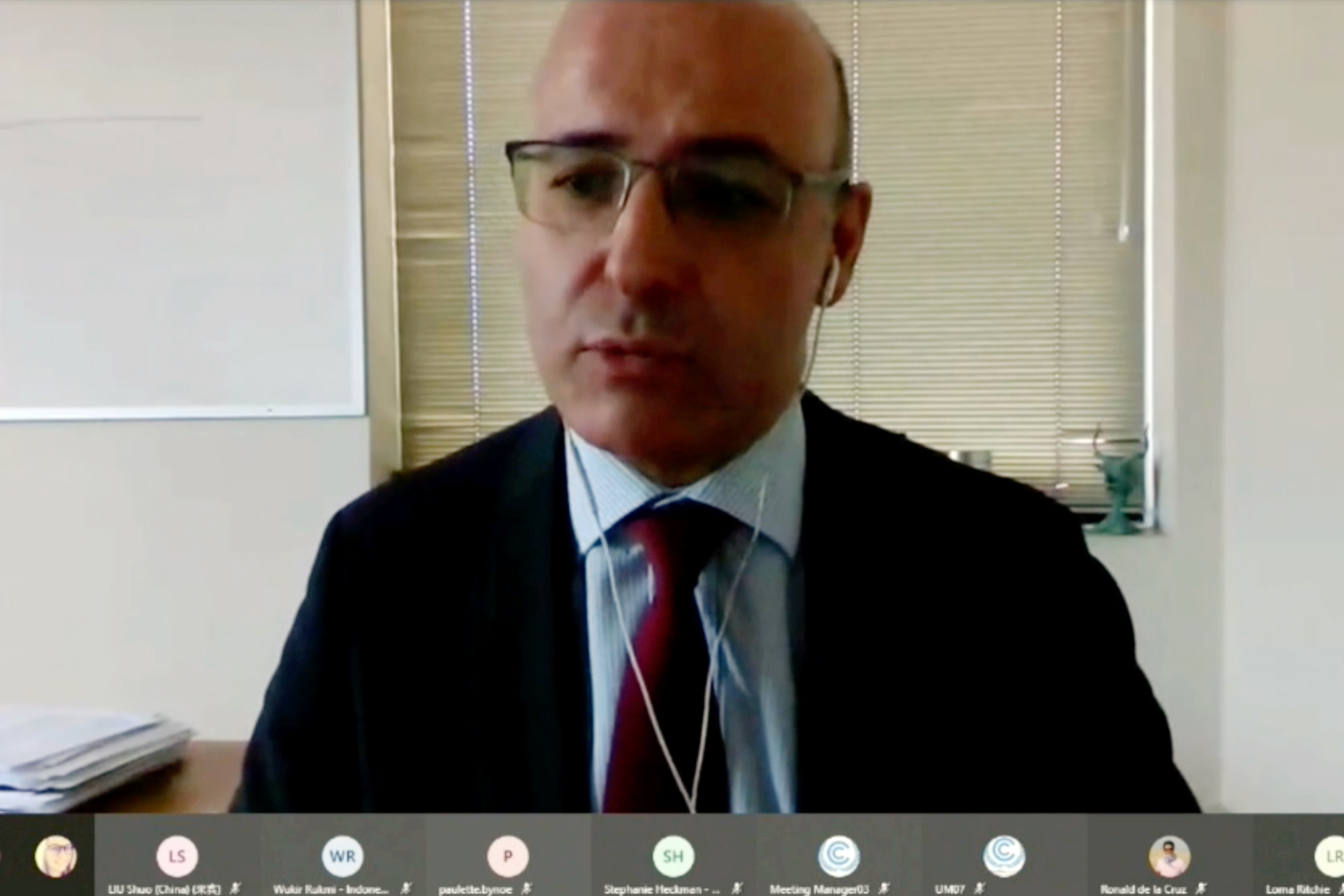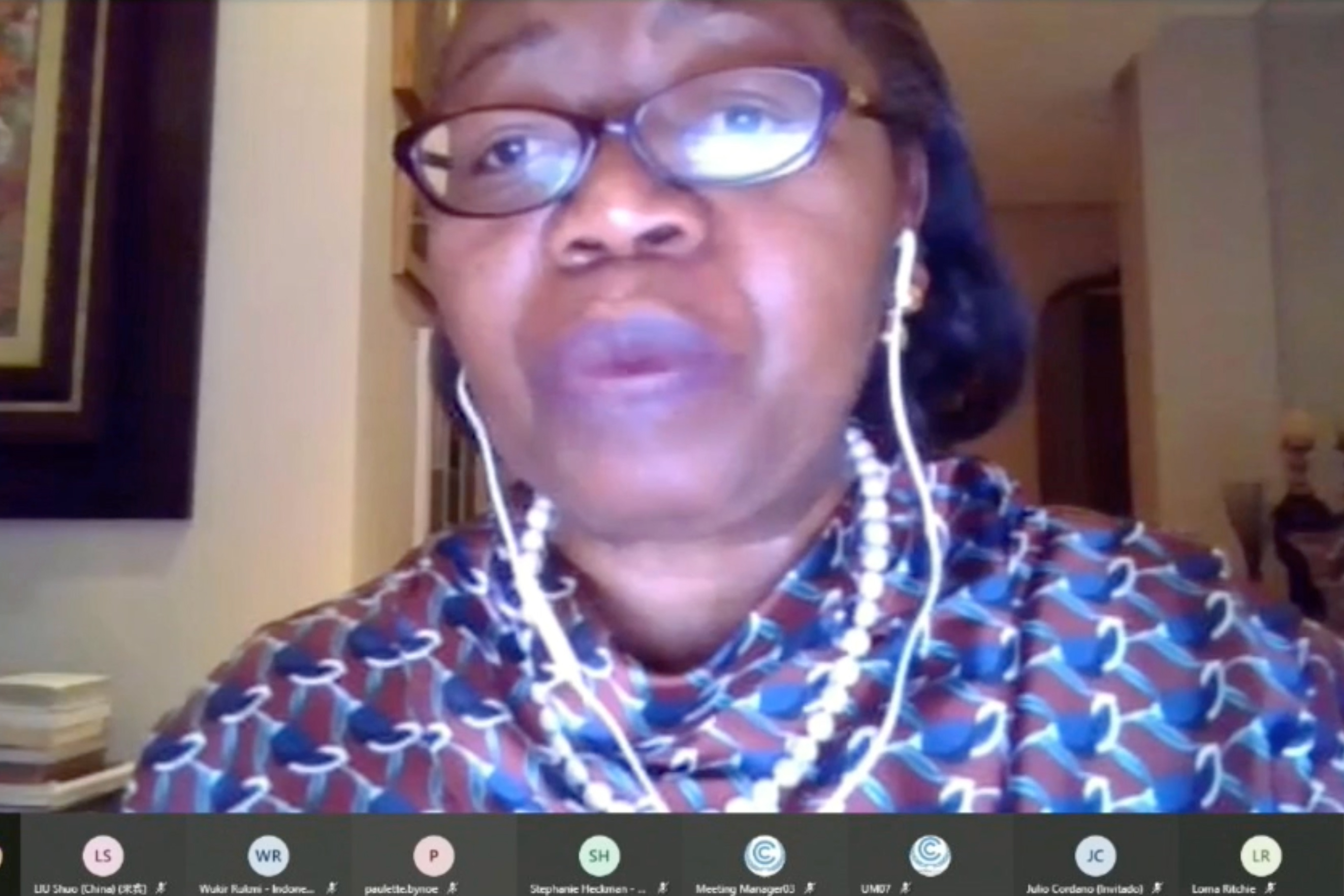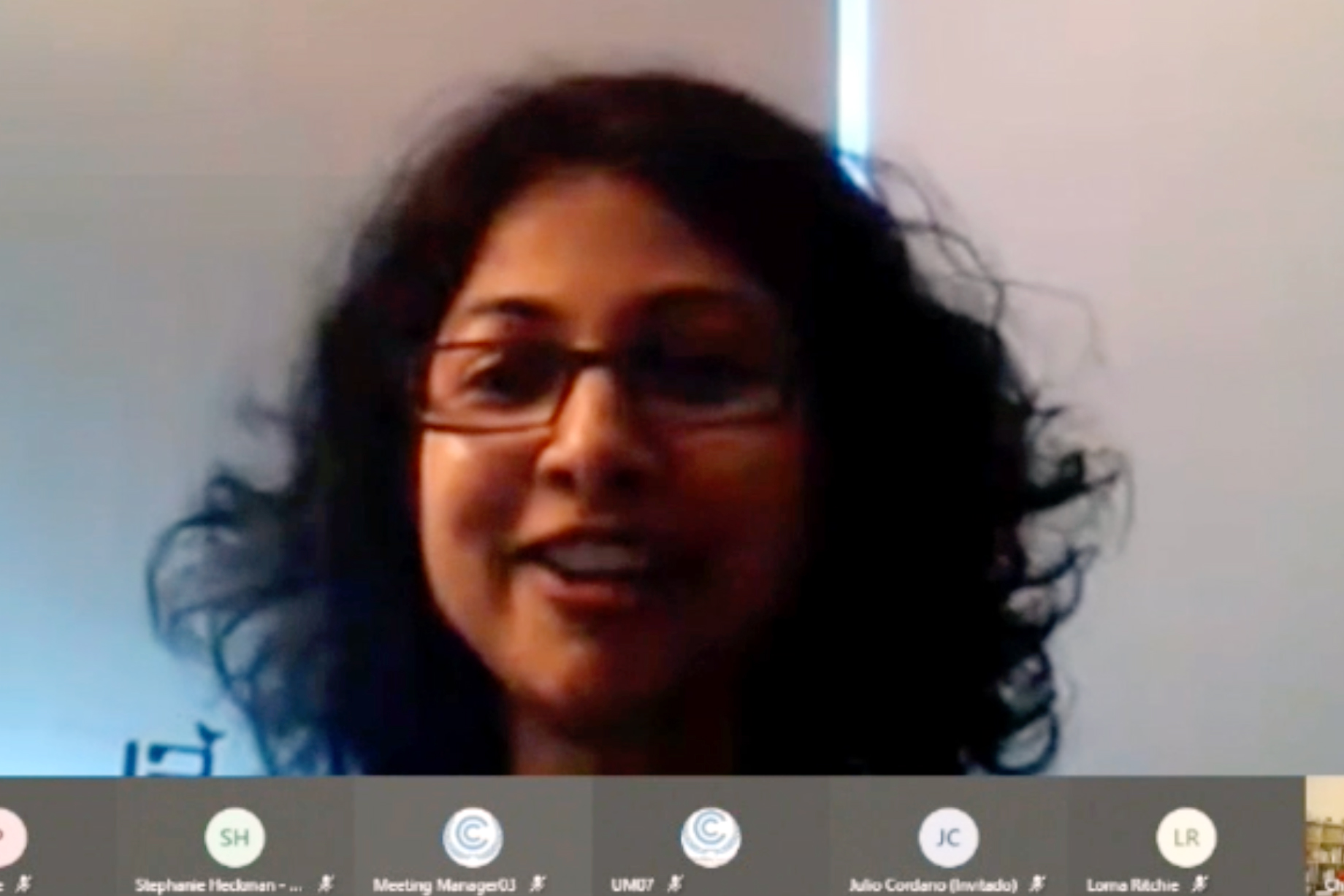UN Climate Change Dialogues 2020
23 November - 4 December 2020 | Online
Highlights for Tuesday, 1 December 2020
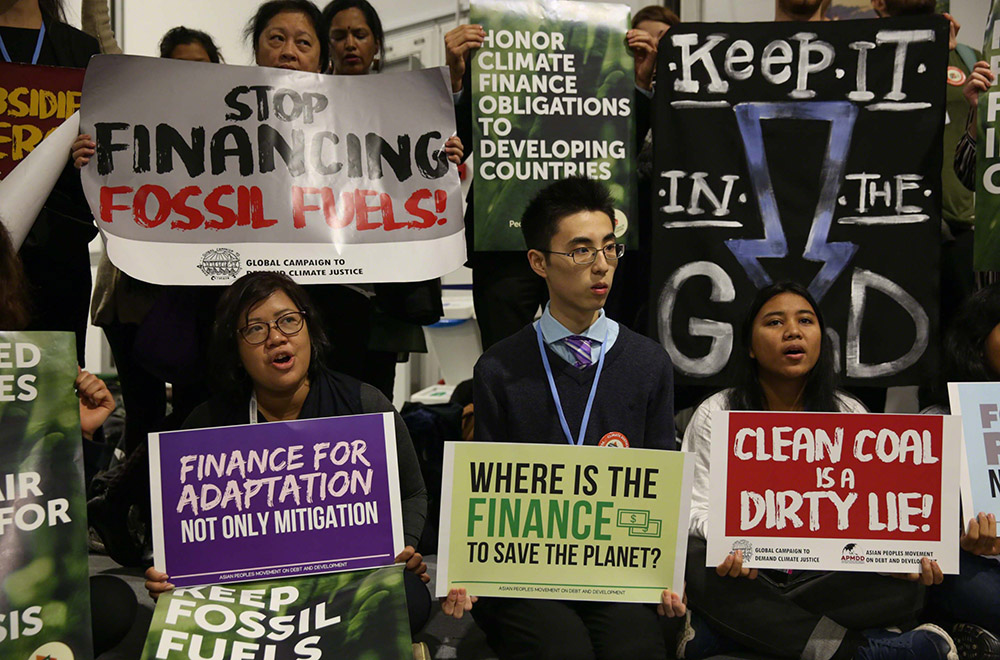
On Tuesday, the Climate Dialogues featured sessions on food security, technology, pre-2020 implementation and ambition, and adaptation issues.
In closed events, parties discussed common tabular formats for reporting on financial, technical, and capacity-building support provided and mobilized, as well as support needed and received; and impacts of the implementation of response measures.
Koronivia Joint Work on Agriculture - Workshop on Socioeconomic and food security dimensions of climate change in the agricultural sector
The first day of this workshop opened with a keynote presentation by Maryam Rezaei, Food and Agriculture Organization of the UN (FAO). Noting that traditional food security programmes tended to adopt production-focused approaches, overlooking post-harvest aspects, she emphasized the need for holistic approaches that address the root causes of under-performance of food systems in delivering food security, addressing different governance levels and being mindful of trade-offs.
Prajal Pradhan, Lead Author of the Intergovernmental Panel on Climate Change (IPCC) Special Report on Climate Change and Land (SRCCL), emphasized that options to address food insecurity are available, and noted that many present mitigation and adaptation synergies and sustainable development co-benefits. As response options, he pointed to, among others: sustainable production practices, noting they can help reduce crop and livestock emissions, enhance carbon sequestration in soils and biomass, and decrease emission intensity; balanced diets as a consumption side option for reducing emissions and improving health outcomes; and reducing food loss and waste.
In discussions, participants addressed, among others: equity and justice issues underlying patterns of undernourishment and overconsumption; the role of trade in maintaining food security; the need to achieve net-zero emissions in food systems; and the need for stakeholders to be involved in a participatory manner, regardless of approaches to socioeconomic equity in food systems.
From technology needs to climate action
In opening remarks, Zitouni Ould-Dada, FAO, highlighted that technology needs assessments (TNAs) have been an important tool for countries in identifying their needs and the actors that can support them.
Key insights from presentations and a panel discussion included:
- The need to promote dialogues between specialists from different sectors;
- Some countries used Technology Action Plans as foundations to prepare successful project proposals to the Green Climate Fund (GCF) and Global Environment Facility (GEF);
- Increased coordination between focal points of different UNFCCC workstreams and the GEF replenishment is important in maximizing delivery of follow-up actions to TNAs;
- The Climate Technology Centre and Network (CTCN) can support countries in revising their TNAs; and
- The importance of sustainable local institutions that promote green technology innovation.
Dialogue on the relationship between land and climate change adaptation related matters
This session was moderated by Kakhaberi Mdivani, Vice-Chair of the Subsidiary Body on Scientific and Technological Advice (SBSTA).
In a keynote, Mohamed Handaine, Indigenous Peoples of Africa Co-ordinating Committee, stressed the need to act for and with Indigenous peoples, noting the challenge posed by non-recognition of Indigenous peoples by states.
Breakout-group discussions addressed assessing and monitoring land adaptation; and policy approaches for land management.
Back in plenary, participants discussed the potential contribution of existing processes under the UNFCCC in enhancing land adaptation. Among others, parties pointed to the importance of actively including stakeholders in developing national plans; increasing communications among different processes; and the importance of the land sector for food security. On linkages with other international frameworks and processes, parties highlighted the need to strengthen joint action with the UN Convention to Combat Desertification and the Convention on Biological Diversity, including by holding more joint events.
Roundtable on pre-2020 implementation and ambition
This session continued the previous day’s discussion on pre-2020 implementation of mitigation, adaptation, and financing actions. Archie Young, for the COP 26 Presidency, and Julio Cordano, for the COP 25 Presidency, co-facilitated the discussion.
Participants heard from four “icebreakers,” all speaking in their personal capacity, who reflected on progress made by parties so far and on the state of the Climate Dialogues.
Pointing to the widening gap between mitigation ambition and actual emissions reduction, Leon Charles, Grenada, emphasized that governments must focus on actually implementing policies.
Maryke van Staden, ICLEI - Local Governments for Sustainability, called for more effective multilevel governance, and highlighted: enhancing access to finance, particularly for local communities; and supporting climate reporting by subnational governments to feed back data to the national and global levels.
Reflecting on the objectives of the roundtable, Franz Perrez, Switzerland, emphasized the need to avoid “lenses of bifurcation and polarization” but rather foster an atmosphere of common understanding, where “we see each other as partners,” noting that all have to commit based on their capacity and responsibility.
Majda Dabaghi, International Chamber of Commerce, said that businesses have played a crucial role since COP 21 by taking on voluntary commitments, and raised the importance of “inclusive multilateralism” in the post-2020 period.
In the discussion following icebreakers, participants highlighted lessons learned to take forward in the post-2020 period. Among others, Mexico, for the Environmental Integrity Group, stressed the need to look at the wider social and economic contexts of implementing climate action. Sun Zhen, China, in a personal capacity, called for the “courage to be honest”, noting that “the reality of science is more important than the reality of politics.” Mark Lutes, for Climate Action Network-International, warned of the “alarming” trend in COVID-19 recovery that public money continues to go to high-emissions sectors.
Adaptation Committee - Achievements in 2020
This event aimed at providing an opportunity for the Adaptation Committee (AC) to seek input from participants on its ongoing work.
Participants heard presentations by AC members on: the upcoming technical report on data for adaptation at different spatial and temporal scales; the upcoming synthesis report on how developing countries are addressing hazards; the current state of the AC’s draft technical paper on approaches to reviewing the overall progress made in achieving the global goal on adaptation (AC18/TP/5A); and the current state of the AC’s work on methodologies for reviewing the adequacy and effectiveness of adaptation and support (AC‐LEG/INFO/1).
Feedback from participants included: prioritizing a qualitative synthesis of existing information; combining approaches so they complement each other; privileging approaches that do not create additional burdens for developing countries; taking into account adaptation to transboundary risks and impacts; examining the impacts of support received; leveraging assessment reports by the IPCC to assess changes in vulnerability; and using information provided in adaptation communications.
Informal joint Presidency and incoming-Presidency technical adaptation event
This event, chaired by Lorna Ritchie, for the COP 26 Presidency, focused on “rising to the challenge of climate risk.” Julio Cordano, in keynote remarks, highlighted that adaptation is far behind mitigation in terms of the state of technical knowledge, capacity building, and technology availability.
In a panel discussion, participants discussed how climate risk, and actions to reduce it, can be evaluated; how the international system can best act to assist in delivering and communicating adaptation progress; and how communities can ensure that adaptation activities are relevant and effective.
Christoph Gornott, Potsdam Institute for Climate Impact Research (PIK), stressed the need for: a comprehensive view of the risks and multi-criteria assessments, rather than using single indicators; local ownership to ensure solutions are sustainable; and bringing together stakeholders, donors, implementers and scientists to guide adaptation planning.
Srilata Kammila, United Nations Development Programme, highlighted the need for linking adaptation action to the Sustainable Development Goals; adaptation action driven by science; and de-risking investments in adaptation. She noted the lack of commonly agreed indicators to calibrate progress on adaptation, stressing that progress is context-dependent and requires a baseline.
Sharing insights from national perspectives, representatives from Uganda, Colombia, and the Netherlands highlighted that adaptation planning is a participative and iterative process. Participants also discussed the role of loss and damage in informing adaptation planning, despite its low profile in countries’ Nationally Determined Contributions.
In closing, Archie Young, for the COP 26 Presidency, noted that adaptation and loss and damage are important to the Presidency’s planning for the Glasgow conference.
Images from the Meeting
Videos from the Meeting
UNFCCC Resources
IISD/ENB Meeting Coverage
- High-level Roundtable on Climate Action, 24 September 2020, Online
- June Momentum for Climate Change, 1-10 June 2020, Online
- 52nd Session of the Intergovernmental Panel on Climate Change (IPCC-52), 24-28 February 2020, Headquarters of the UN Educational, Scientific and Cultural Organization (UNESCO), Paris, France
- Chile/Madrid Climate Change Conference, 2-15 December 2019, Madrid, Spain
- ENB Coverage of Climate Change Meetings
IISD Resources
- Subscription Page for ENB Update, SDG Update, and Peer-to-Peer Community Mailing Lists (including Climate News, SDG News, Biodiversity News, Ocean News, Forests News, Trade and Sustainable Development News, and Regional Updates)
- SDG Update Newsletter - A compilation of news, commentary and upcoming events published on the SDG Knowledge Hub
- SDG Knowledge Hub - An Online Resource Center for News and Commentary Regarding the Implementation of the United Nations’ 2030 Agenda for Sustainable Development, including all 17 Sustainable Development Goals (SDGs)

